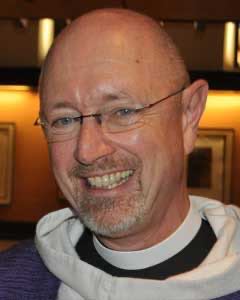SAME PLANET, Different Worlds was the theme of the 1998 Vancouver International Film Festival.
With more than 300 films from 40 countries, it was an apt theme in a time when we’re so often presented with the dynamics of globalization and tribalism.
How do we regard our place in the global context, and how do we respond to the appeals of tribalism?
Here are some short takes of films that either have a good possibility of commercial release or have already been released.
Such a Long Journey is director Sturla Gunnarsson’s adaptation of Rohinton Mistry’s novel. Set in Bombay in 1971, it tells the story of Gustad Noble (wonderfully played by Roshan Seth), a dedicated bank clerk and devoted family man.
Noble’s life begins to unravel when he agrees to do a favour for a mysterious old friend. India is changing: the war with Pakistan is escalating and the political climate is volatile.
Here is a window into Indian society where families live closely together, emotion and superstition are strong partners in creating community, and religion is central to life. Watch for a fascinating sequence where a simple street wall is transformed by a pavement artist into a shrine.
The artist draws beautiful colour icons of figures from each world religion, and before long people gather at different sections of the wall, worshipping and offering flowers or incense.
The final section of the wall he draws is a picture of the whole wall itself; transformed into a place of worship before your eyes, the wall itself has become sacred space.
This is but one of many wonderfully realized moments in a rich and vibrant film – a Canadian-British co-production – beautifully photographed and directed.
From India to the United States: you can’t find too much of a different world than what director Robert Towne creates in Without Limits .
Telling the story of Oregon track star Steve Prefontaine (Billy Crudup) this film is the American dream turned tragic tale – a too young death of a budding hero.
Prefontaine (Pre) grew up in a German speaking household – his ability to run seems to have come from being chased by kids in public school, calling him a “Kraut.”
Traumatized by their meanness, Pre becomes a high school track star, and is drafted by Oregon State coach Bill Bowerman (Donald Sutherland).
A trip to the 1972 Olympics rewards Pre with a fourth place finish: his style of front running was not able to withstand the pressures of international competition. Returning home, he begins training again, but his life ends as a result of a car crash in 1975.
A beautifully crafted film, it will appeal to those who love sports movies. This is a film where, unlike the close and combative family relationships shown in Such a Long Journey, the Prefontaine family ceases to be relevant once Pre’s running career begins.
It is a story of rugged individualism, without reference to socio-political realities. Even the bombing at the Munich Olympics is treated as an inconvenience to the aspirations of athletes.
Watch for an interesting subplot as coach Bowerman creates the shoes and logos that become Nike.
Three brothers – actor Aidan Quinn, director Paul Quinn and cinematographer Declan Quinn – have collaborated on a lovely Irish/Canadian production called This is My Father .
Starring with Aidan are James Caan and Stephen Rea (with a nifty cameo by John Cusack). It’s a family story: James Caan is Keiran, a middle-aged widower who teaches high school in Chicago, and cares for his mother who has been left paralyzed by a stroke.
When Keiran discovers a picture of a young couple, one of them clearly his mother, he decides to travel back to his mother’s home town in Ireland to learn as much as he can about the lives of his mother and father. Taking with him a rebellious nephew, their journey lands them in a place where the secrets of their ancestry are revealed. Much of the film is in flashback with Aidan Quinn playing Keiran’s father.
It is an Irish Catholic upbringing, and the flashbacks are at their best when they show fiery preachers lecturing the townsfolk on the evils of drink and sex. It’s a story of discovery, of uncovering family history that illuminates life in the present time. Beautifully photographed, directed and acted, this is a film to watch for.
The Australian film Amy had its international premiere at the festival in Vancouver. It’s a charming, offbeat movie that tells the story of a little girl (Alana de Roma) who seems unable to speak or hear, but who can sing.
Amy’s father was a rock musician who died from electric shock at an outdoor rock concert in the rain. About three years old when she witnessed her father’s death, Amy retreats into her own inner world, unable to communicate except when she hears music or sings the songs that her father’s band members taught her.
Relocating with her mother Tanya (Rachel Griffiths) to Melbourne, they land on a back street with houses and flats inhabited by eccentrics – one of whom is out-of-work musician Robert (Ben Mendelsohn).
Robert hears Amy sing, and thus begins a string of events that ends, with among other things, a police search-party walking through a park, singing as they search.
It’s a film about the consequences of unexpressed grief, and a story of community, redemption and salvation in the midst of a post-modern Australia. Same planet, different worlds; through films we get a glimpse of the differences that make life so complex and interesting.
Peter Elliott is dean of Christ Church Cathedral, Vancouver, and a member of the board of directors of the Vancouver Film Festival.




